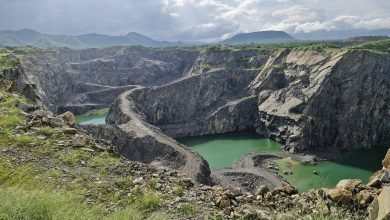Environmental Permits with AMDAL for Business

Environmental Permits with AMDAL for Business: What You Need to Know
Starting or expanding a business in Indonesia isn’t just about securing capital and customers. If your business has any impact on the environment, you’re also legally required to meet environmental compliance — and that means dealing with AMDAL and other permits.
What is AMDAL?
AMDAL stands for Analisis Mengenai Dampak Lingkungan, or Environmental Impact Assessment. It’s a key document required by Indonesian law for businesses that may have significant environmental effects. This includes industries like mining, manufacturing, infrastructure, energy, and large-scale agriculture.
The AMDAL process assesses the potential environmental impact of a planned business activity before it’s carried out. It helps decision-makers understand the consequences, set mitigation strategies, and ensure that environmental sustainability is taken seriously from the start.
Why AMDAL Matters for Your Business
If your business falls under the category of activities that require AMDAL, it’s not optional — it’s mandatory. Without an approved AMDAL, you cannot obtain your environmental permit (Persetujuan Lingkungan), which is a prerequisite for obtaining a business license (Perizinan Berusaha).
Skipping AMDAL or faking compliance isn’t just risky — it’s illegal. Authorities may freeze your operations, impose heavy fines, or revoke your business permits altogether. Beyond the legal implications, having a credible AMDAL demonstrates your company’s commitment to sustainable practices, which is increasingly important to investors, partners, and the public.
AMDAL vs UKL-UPL vs SPPL
Not every business needs an AMDAL. The Indonesian environmental permitting system is tiered based on risk:
-
AMDAL: Required for businesses with major environmental risks.
-
UKL-UPL (Upaya Pengelolaan Lingkungan dan Upaya Pemantauan Lingkungan): For medium-risk activities.
-
SPPL (Surat Pernyataan Kesanggupan Pengelolaan dan Pemantauan Lingkungan Hidup): For low-risk activities.
Which one applies to your business depends on the scale, type, and location of your operation. This classification is regulated under the Risk-Based OSS (Online Single Submission) system.
Steps to Get an Environmental Permit with AMDAL
-
Screening: Determine if your business activity requires AMDAL.
-
Scoping: Define the scope of the environmental study with stakeholder input.
-
Impact Analysis: Conduct environmental studies and develop mitigation plans.
-
Public Consultation: Engage affected communities and stakeholders.
-
Review and Approval: Submit the AMDAL documents for review by the Environmental Agency.
-
Environmental Permit Issuance: Once AMDAL is approved, the environmental permit is issued.
AMDAL is Not Just Paperwork
This isn’t just a bureaucratic hurdle. The AMDAL process forces businesses to plan responsibly. It encourages transparency, accountability, and proactive risk management. Many businesses that invest in proper environmental assessment early on avoid major headaches later — including legal issues, community conflicts, and environmental disasters.
Conclusion
Environmental permits and AMDAL are vital parts of doing business responsibly in Indonesia. If your business activity could impact the environment, getting your AMDAL right is non-negotiable. It’s a legal requirement, a planning tool, and a trust signal all in one. Don’t cut corners — invest in the process and build a foundation that supports long-term, sustainable success.



